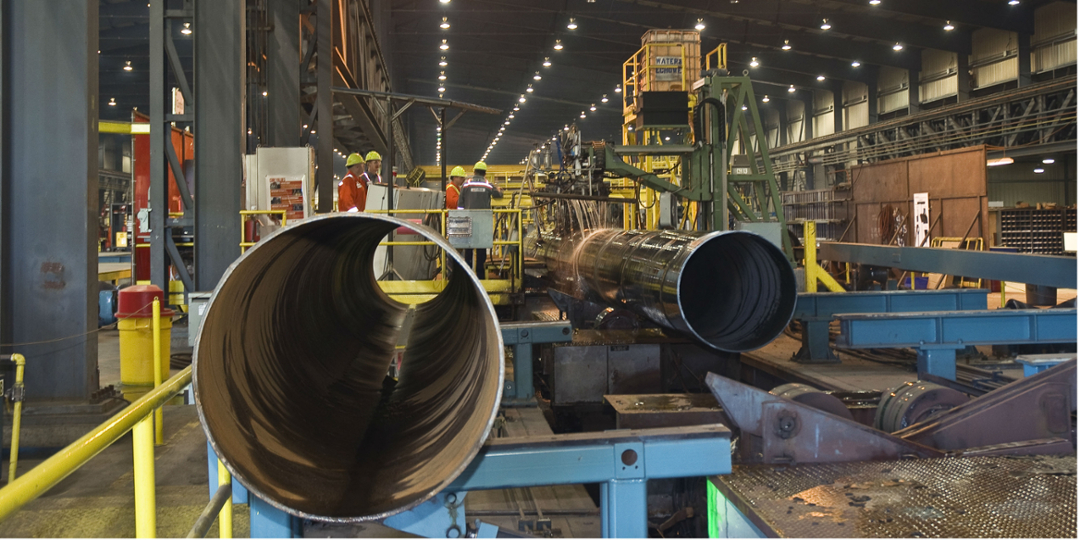
USask Engineering researchers receive NSERC funds to make food, pipelines safer
A total of five University of Saskatchewan researcher teams are partnering with industry on a wide range of projects.
By USask Research Profile and ImpactSASKATOON – Backed by $2 million from the federal government and partner organizations, University of Saskatchewan (USask) researchers aim to make Arctic pipelines stronger and safer, protect the food supply, and improve crop processing with cutting-edge technology.
Five researcher teams have been awarded a total of $1.08 million from Canada’s Natural Sciences and Engineering Research Council (NSERC) to lead the wide-ranging NSERC Alliance research projects. As well, partner organizations are contributing a total of $600,000 in cash and $340,000 in in-kind contributions to the projects.
“This major partnered investment will support exciting USask research projects that address complex challenges, create environmental and economic benefits, and contribute to Canada’s long-term competitiveness,” said USask Vice-President Research Karen Chad. “These collaborative projects will also train new researchers in areas important to Canada and our partners.”
The new research projects with combined NSERC and partner funding are:
Developing high-strength, cold-tolerant steel for pipelines - $770,000
USask engineering researcher Jerzy Szpunar—working with EVRAZ Inc. and CanmetMATERIALS Natural Resources Canada—will develop a new process for manufacturing high-strength steel adapted to low-temperatures (-450C) for pipelines in northern Canada and Arctic areas around the world. Pipelines in cold regions face challenges such as terrain frozen by permafrost or gouged by sheets of ice. The research could improve the safety of gas and oil transport, open a new market for Canadian manufacturers, and reduce the environmental damage in the case of a pipeline failure in a sub-arctic environment.
Using nanotechnology to decontaminate eggshells - $110,600
Partnering with the Canadian Poultry Research Council and Saskatchewan Egg Producers, a multi-disciplinary USask team led by Lifeng Zhang (engineering), Shelley Kirychuk (medicine), and Karen Schwean-Lardner (animal and poultry science) will develop a chemical-free, nanotechnology-based surface decontamination method for treating eggshells to control microbial contamination. The results will improve food safety and reduce environment impacts.
Using biotech to make animal feed processing cheaper and more efficient - $697,000
USask veterinary researcher Dr. Matthew Loewen—partnering with biochemist Michele Loewen at the University of Ottawa and Western Grains Research Foundation, Saskatchewan Pulse Growers, and Botaneco Inc.—will use cutting-edge biotechnologies to tweak the chemical structures of two enzymes important for removing bitter-tasting tannins from animal feed. The results will lead to more efficient and cheaper bioprocessing, yielding more palatable and safer animal feeds. The research could have long-term applications for making new plant-based products for human consumption.
Improving anti-microbial use practices for the beef industry - $430,500
Working with the Beef Cattle Research Council (BCRC) and Alberta Beef Producers, USask veterinary researcher Dr. Cheryl Waldner, who holds the NSERC/BCRC Industrial Research Chair in One Health and Production-Limiting Diseases, will examine changes to antimicrobial use and resistance in cow-calf operations resulting from recent federal regulations requiring veterinary prescriptions for the sale of all medically important antimicrobials for use in food animals. The results will inform beef industry stewardship practices that minimize antimicrobial resistance and support environmental sustainability, protecting public health, animal health, and animal welfare.
Making soil management smarter–$62,600
To precisely manage their crops, producers need detailed information about how soil properties vary across the field. How much information is the right amount? Soil scientist Angela Bedard-Haughn and her team, working with CropPro Consulting, will combine machine learning, predictive soil mapping techniques, and strategic field soil sampling to determine a cost-effective soil sampling strategy. The results could help make precision soil mapping widely accessible to producers.

